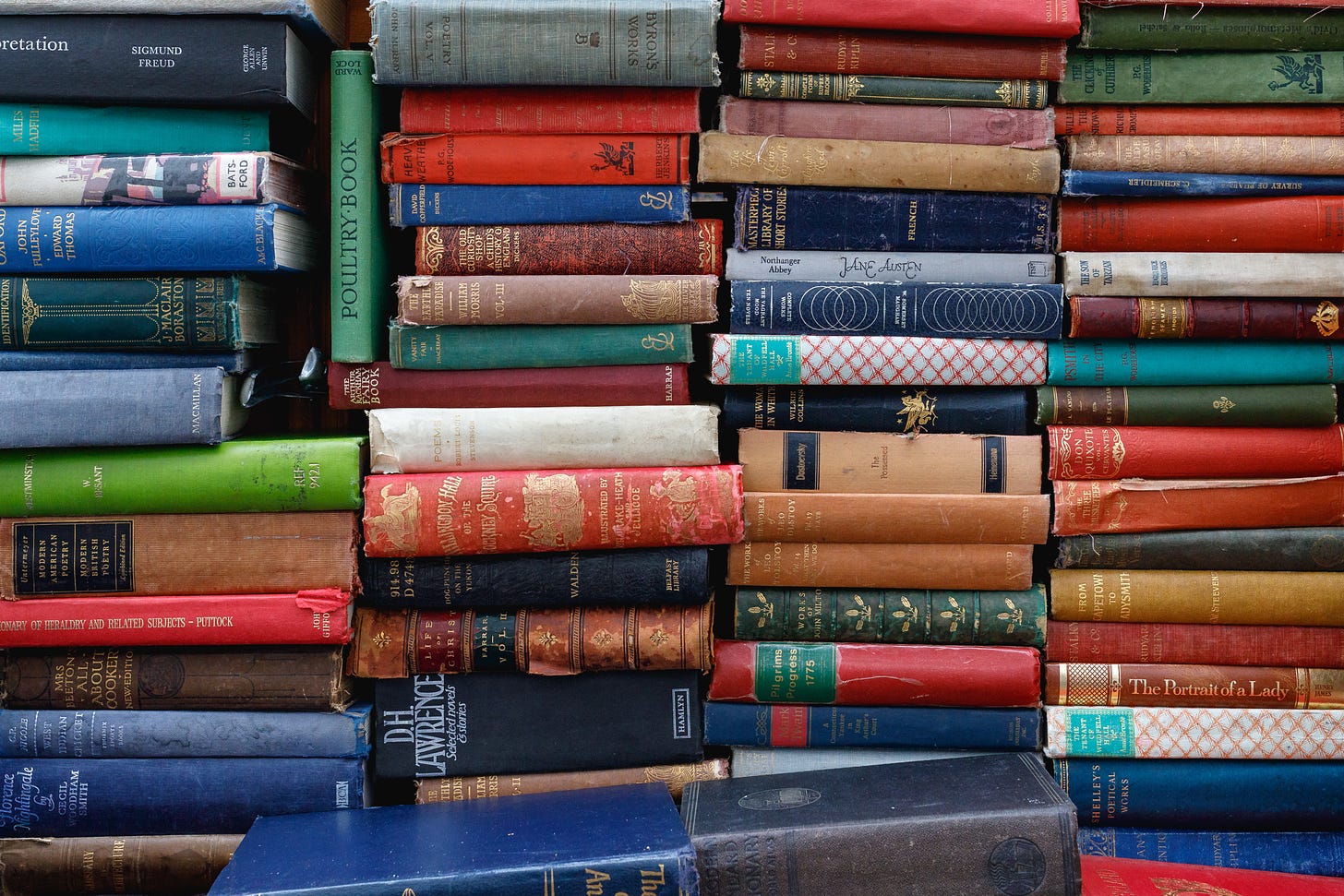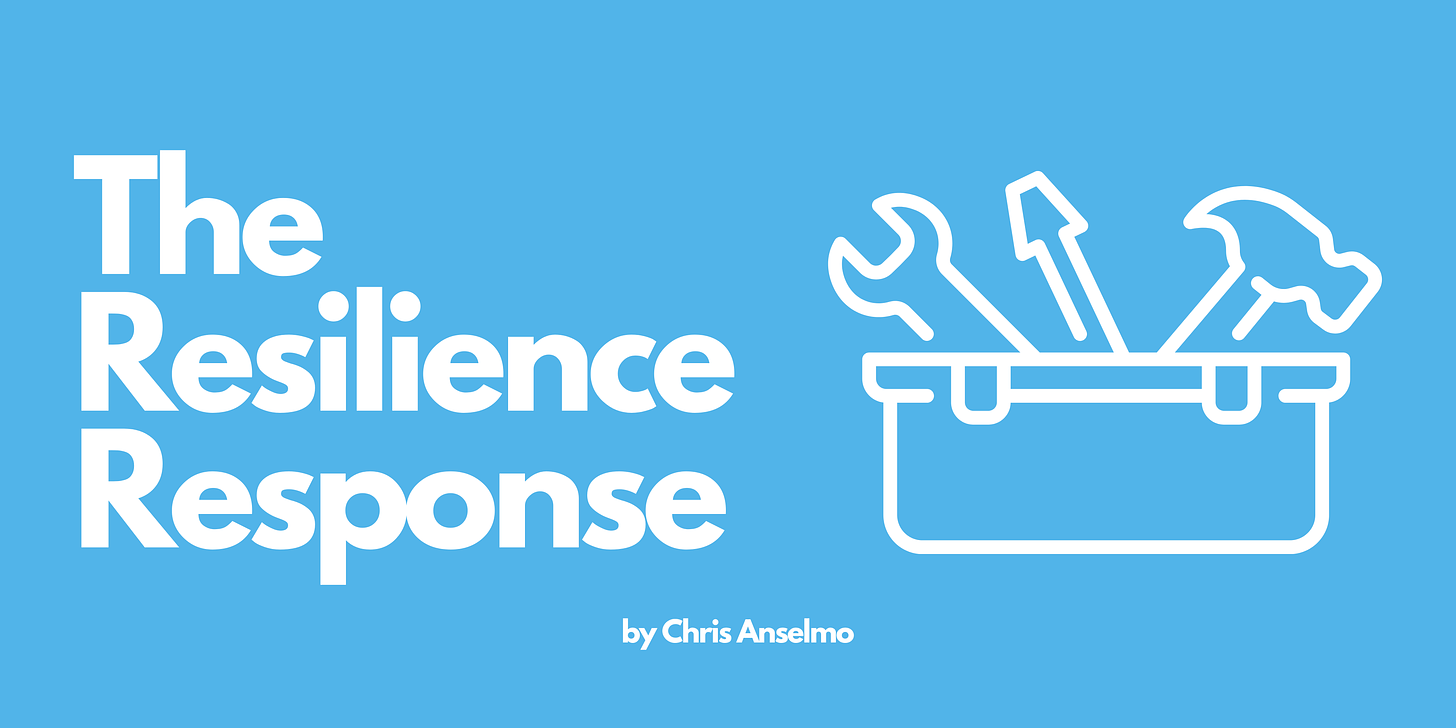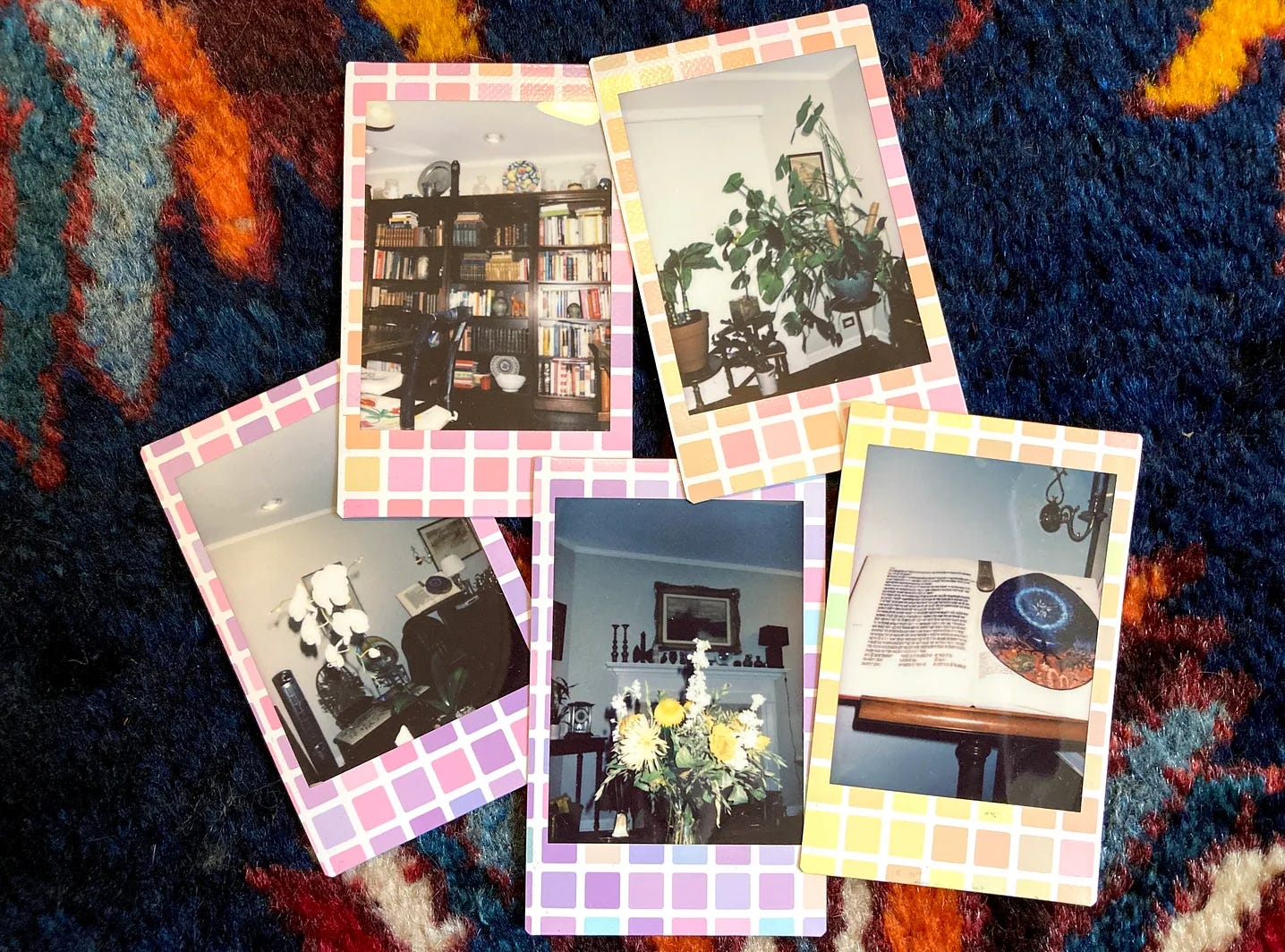The Resilience Response #6 - September 30, 2023
How to get the most out of reading, Maddie Burton on "The Artifacts of Our Lives", scheduling breaks to prevent burnout, and more
Happy Saturday!
Welcome to The Resilience Response, a newsletter that provides the tools and resources you need to face adversity with confidence.
I was all set to write about hitting 1,000 subscribers this week, only to lose a subscriber in the time it took me to write this newsletter! Oh well. (At least it keeps me humble.)
That said, I am on the cusp, and even though it’s not a nice round number, 999 is an amazing accomplishment, one that I could not achieve without you, dear reader. From the bottom of my heart, thank you!
Here’s what’s on deck this week:
🔧 For the Toolkit: A two-step formula to get the most out of reading
🎙️ In the First Person: Maddie Burton writes about the emotions of going through her mother’s belongings after her passing
🗓️ What’s Helped Me: Scheduling breaks to prevent burnout
✍️ Weekly Intention: Practice information filtering
🙏 Final Thoughts: The legacy of Chris Snow
🔧 For the Toolkit: A two-step formula to get the most out of reading

There are many situations when we need to conduct research to solve a stressful problem. Whether it’s making sense of what comes next after a disease diagnosis, understanding our legal recourse if our rights have been violated, researching how to buy a home in a volatile housing market, or another challenge, it is important to read as much as possible so we can develop an informed plan of attack.
Finding valuable content is a key component of this information search.
In a recent blog post, author and investor Morgan Housel shares a simple formula to get the most out of reading: “Lots of inputs and a strong filter.”
The first step is to expose ourselves to a variety of inputs (books, articles, podcasts, etc.), which will maximize our chances of discovering important information and life-changing ideas. The second step is to ruthlessly filter out any uninteresting or irrelevant content so we don’t waste valuable time.
Says Housel: “Without flooding your brain with inputs you’ll be stuck in the tiny world of what you’ve personally experienced. But without a strong filter, you’ll be overwhelmed with choice and paralyzed by inaction.”
Regarding inputs, it is important to think about what information would be helpful for the problem we are trying to solve. Are we looking for advice? Case studies and examples? A specific how-to process? A general idea of what we need can keep us from getting overwhelmed before we start.
Next, we should look for a variety of sources — sites on our topic of interest, internet forums, relevant books, recommendations from others who have dealt with a similar challenge, etc. Different sources help provide a range of perspectives which can be useful when there’s no easy solution.
Once our inputs have been identified, the second step is to ruthlessly filter out irrelevant information. This is where many of us get tripped up!
When we are in a difficult situation and need to learn about an unfamiliar topic, we feel we have to read every last word. We worry that if we cut bait too soon, we will miss the one key piece of information we are looking for.
This rarely works out. It not only wastes time but makes it less likely that we will remain motivated enough to find the diamond in the rough we’ve been seeking all along.
This happened to me in the early days of my disease journey. I found a patient forum, and not knowing any better, read every single post in every single thread. It took me all day! I slogged through topics I had no interest in reading, simply because I didn’t want to miss anything. There was no need for me to read fifty posts on accessible gardening when I lived in a studio apartment in the middle of a city.
This is folly, according to Housel: “[T]he highest odds of finding the right piece of information comes from inundating yourself with information but very quickly being able to say, ‘that ain’t it.’”
Our time and energy are precious. If something doesn’t appear helpful from the start, it’s usually not. The information you need is out there, somewhere. Keep filtering until you find it.
🎙️ In the First Person: Maddie Burton on “The Artifacts of Our Lives”
One of the joys of Substack is the chance to connect with other writers, especially those who also write about adversity.
I have gotten to know
these last few months and love reading her newsletter, , when it hits my inbox every Friday.This week, Maddie wrote a heartfelt essay about going through her mom’s belongings after her passing earlier this year. These “artifacts” left behind carry tremendous meaning, resurfacing moments long forgotten and conveying their own sense of style and personality. These everyday items — notes tucked into books, colorful clothing, macaroni art — can’t all be kept, but each deserves its own moment one final time.
Maddie takes the reader through this emotional process and shares what she learned, both about her mother and life. I was lucky enough to get an advanced look at this piece (she insists that I helped her edit but all I did was suggest a sentence get moved!) and am happy to see it receive such a positive reaction from readers.
🗓️ What’s Helped Me: Scheduling breaks to prevent burnout
Last week, I shared a piece by Jeff Goins about how we need to stop working ourselves to exhaustion. It made me reflect on my relationship with work and how I am terrible at taking breaks.
My problem is I don’t have a good shutoff valve. There have been times when I’ve worked 12 hours straight, stopping only to eat.
I am still not good at taking breaks, but I am much better at it than I used to be. The reason? I put them on my calendar.
Yup, I’ve made break time its own task 🤦♂️. But it works!
I like to give myself at least a two-hour break each day. I find that anything less than one hour makes it hard to properly unwind.
If you find yourself struggling to unplug, perhaps a calendar block is what you need. If you need further justification, remember that breaks can increase productivity in the long run!
✍️ Weekly Intention: Practice information filtering
This week’s intention is to get better at discarding boring content.
Next time you slog through an article or book, don’t feel obligated to finish. Cut bait and move on. The goal is to move past the discomfort so it becomes more natural. This way, the next time you are confronted with a challenge that requires a lot of research, you won’t feel like you need to read every last word of something.
What is something you stopped reading? Let me know in the comments. I’d be curious to know!
🙏 Final Thoughts
This week, I was saddened to learn the news about Chris Snow, an ALS advocate and executive with the NHL’s Calgary Flames. Snow experienced a catastrophic brain injury on Tuesday and is unfortunately not expected to survive.
My former role at the Muscular Dystrophy Association involved keeping tabs on everything happening in the neuromuscular disease space. I read a lot of news stories every week, which is how I learned about Chris’s fight with ALS. I have followed his family’s story for many years and always admired how Chris didn’t let this unforgiving disease dampen his zeal for life.
His wife, Kelsie, has provided updates on his health since the beginning of his ALS journey. Last December, Chris was in the hospital with a serious respiratory infection and was on life support twice. The day she announced he was home from the hospital was a special day. She called it their “Christmas miracle.”
In the end, ALS has a 100% fatality rate. That’s just how it is right now, with no groundbreaking treatments that can reverse the symptoms. Even though I knew this day would eventually come, the news was still devastating to hear.
As Kelsie wrote on social media, “Hug your people.”
If you would like to help the Snow family, a GoFundMe campaign has been set up to support them in this difficult time.






Another great post - you always give me pause to stop and think about how I approach things and how else I could look at them. Thank you.
And 999? AWESOME! 🥳
Chris, I so appreciate your highlighting my essay. It was such a meaningful one to write...and yes, I *do* insist that your editing chops helped make it that much better. 🤗
“Lots of inputs and a strong filter” and “hug your people” are both wildly good pieces of advice.
Awhile back, I realized that if I wasn’t enjoying a book after the first handful of pages, I could simply...put it down! Even if I’d (gasp!) already purchased it. I had been viewing reading as an obligation, and it was a relief to see it instead as a source of joy.